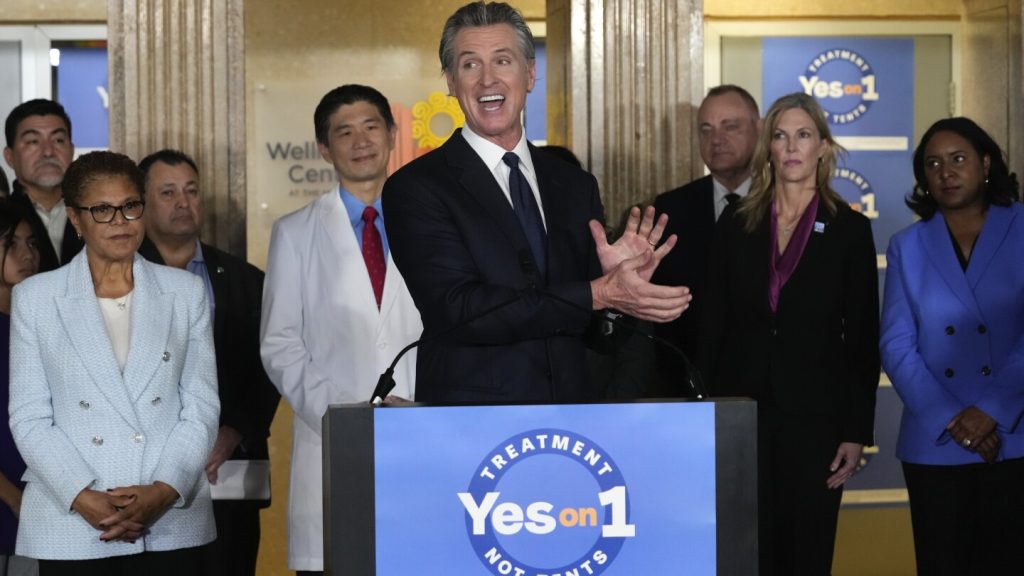In a recent development, California voters have approved a measure that will impose strict requirements on counties to spend on housing and drug treatment programs to tackle the state’s homelessness crisis. Governor Gavin Newsom, who campaigned for the measure, expressed his satisfaction with the outcome, emphasizing the need for immediate action to address the historic reform. The initiative, known as Proposition 1, marks the first update to the state’s mental health system in 20 years and aims to address the significant homeless population in California, estimated at roughly 181,000 individuals.
Under the new measure, counties will be mandated to allocate two-thirds of the funds from a voter-approved tax on millionaires for mental health services towards housing and programs for homeless individuals with serious mental illnesses or substance abuse issues. The state currently faces a shortage of beds for mental health and addiction treatment, highlighting the urgent need for additional resources to support those in need. The initiative also enables the state to borrow billions of dollars to build housing units and increase mental health and addiction treatment beds, with a focus on veterans and individuals with behavioral health issues.
Despite the positive implications of the measure, some opponents have raised concerns about potential threats to programs that aim to prevent homelessness in the first place. Critics argue that the new requirements could disproportionately impact rural counties and divert funds from essential services that cater to a broader range of needs. Homelessness remains a pressing issue across California, with tent encampments and disruptions in communities underscoring the need for comprehensive solutions. Governor Newsom views Proposition 1 as a critical component of his plan to reform the state’s mental health system and address the root causes of homelessness.
The passage of Proposition 1 reflects the diverse perspectives among California voters, with individuals like William Elias expressing support for the measure due to the pervasive homelessness problem in the state. However, others like Katherine Wolf have voiced concerns about potential infringements on the rights of individuals with mental disabilities and the overall impact of the measure. The debate surrounding Proposition 1 mirrors larger discussions about the effectiveness of current approaches to addressing homelessness and the allocation of taxpayer funds to combat the crisis. Despite previous investments in various programs, California continues to grapple with the challenges posed by homelessness, prompting calls for more targeted and sustainable solutions.
Governor Newsom’s administration has dedicated significant resources to address the homelessness crisis, including investments in housing and treatment facilities. However, some critics argue that the state has yet to see substantial improvements despite the substantial funds allocated towards the issue. The revenue generated from the millionaire tax provides a significant portion of the state’s mental health budget, underscoring the importance of continued support for programs that aim to support vulnerable populations. Moving forward, the implementation of Proposition 1 will be closely monitored to assess its impact on homelessness rates and the effectiveness of mental health services in California.


